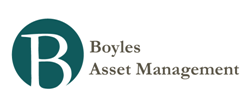John Mauldin: The End of Europe?
One of the interesting things about being in Hong Kong is that I get to see the weekend edition of the Financial Times 12 hours early. And the headlines were not all that pleasant. As I promised last week, we will cast our eyes to Europe and ponder what is in store for Europe for the year and the next five years. And what do we read on page 2? The "ECB raps revisions to draft a fiscal pact." Seems they feel there are too many loopholes, which will make the document meaningless … somewhat like the treaty they have now. And we further learn that "Greek default threat grows as talks falter." Seems there is a lack of agreement on how much of a haircut the investors ought to take, and the Greeks don't want to guarantee any future debt, just in case they need to default some more in the future. But they do want the €15 billion they need to keep the debt machine running for a few more months.
And on page 1, in big type, we are surprised (but not very) by the headline, "France and Austria face debt blow." Seems those sharp-eyed accountants over at S&P have decided to downgrade French debt from AAA. Which of course leads to another headline on page 2, suggesting "Firepower of bail-out fund cast into doubt." The currency markets were shocked – shocked I tell you – that S&P would do such a thing and promptly took back the euro rally and cast the euro down to recent cycle lows. Who knew, other than the entire free world not watching reality TV, that S&P was planning to do such a thing? And we read elsewhere that the European Commission is dismayed that S&P would do something so clearly not right, at least according to the way they keep their own books.
Even here in amazing Hong Kong, with the growth of China driving a wave of prosperity, eyes are fixed on Europe. How will they deal with the crisis? We read that US exports to Europe were down 7% last quarter, and Europe has not yet really entered into recession, which is almost guaranteed this year. And if US exports are down, then so are Asian and Latin American exports. Global growth appears to be threatened.
- John Mauldin: France: On The Edge Of The Periphery
Recently there have been a spate of horrific train wrecks in the news. Almost inevitably we find out there was human error involved. Almost four years ago I began writing about the coming train wreck that was Europe and specifically Greece. It was clear...
- Leaving The Hotel Euro? – By Steve Keen
So if Europe’s leaders could just take a step back and realise that their currency isn’t really a currency, they could perhaps convert it into what it most closely resembles – a European SDR – and reduce at least the government-mandated part of...
- Hussman Weekly Market Comment: Extraordinary Strains
Just weeks after the enthusiasm over Europe’s plan to plan for the possibility of using the European Stability Mechanism to bail out Spanish banks, the subtle technicality – that direct bailouts would make all of Europe’s citizens subordinate to...
- John Mauldin: There Will Be Contagion
… (December 11, 2009) – Greece's prime minister, George Papandreou, told reporters in Brussels on Friday that European Central Bank President Jean-Claude Trichet and Luxembourg Prime Minister Jean-Claude Juncker see "no possibility" of a Greek...
- Hussman Weekly Market Comment: Not Over By A Longshot
On Friday, the yield on 1-year Greek government bonds closed above 135%. As I've noted in recent weeks, the bond markets continue to reflect expectations of certain default on Greek debt. All they are working out now is the recovery rate. As of last...

